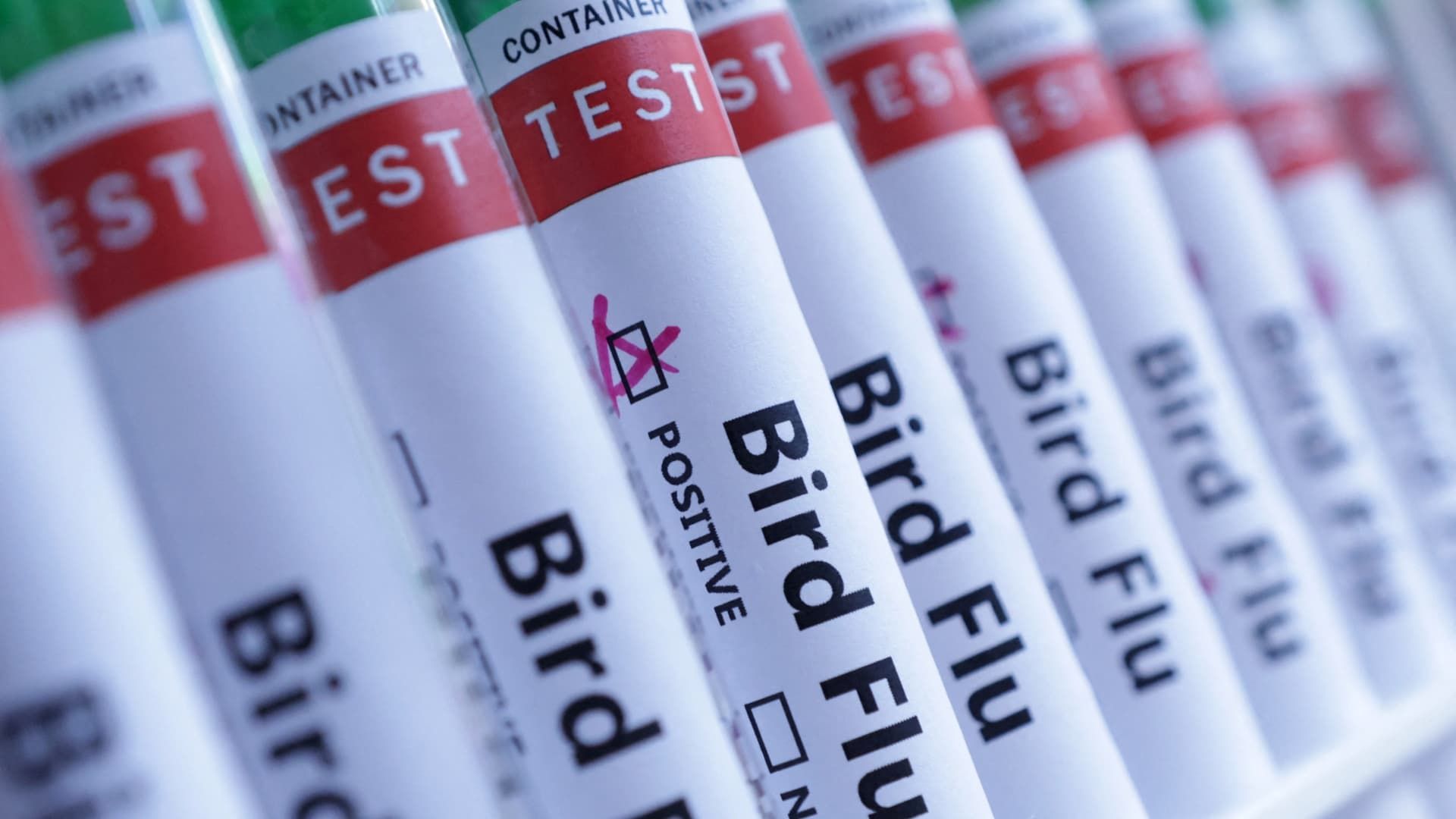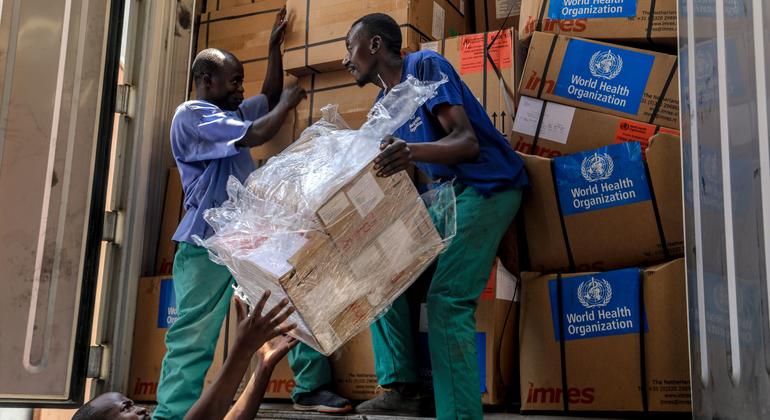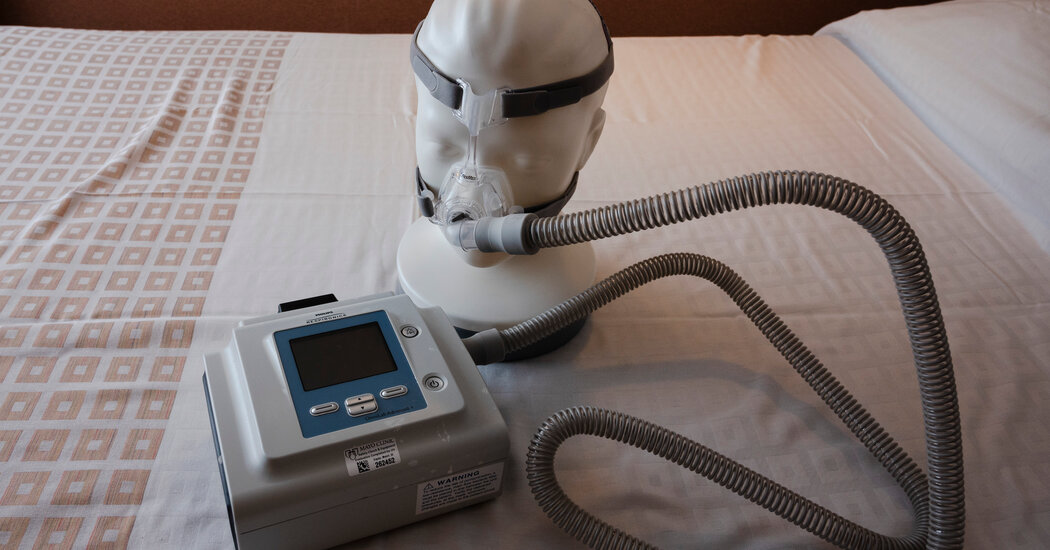In this illustration taken on June 10, 2024, test tubes labeled with the words “Bird Flu” are seen.
Given Ruvic | Reuters
The United States has recorded its first human death from bird flu, a grim milestone that comes after at least 66 cases have been recorded in the country.
The patient, who was over 65 years old and had underlying medical conditions, was hospitalized in Louisiana in December; The case was considered the first serious human H5N1 infection in the country.
The Louisiana Department of Health said the patient had been exposed to a combination of a backyard flock and wild birds.
“The Department expresses its deepest condolences to the patient's family and friends as they mourn the loss of their loved one,” it said in a statement. “Due to patient confidentiality and respect for the family, this will be the last update on the patient.”
According to the Centers for Disease Control and Prevention, all but one of the human bird flu infections confirmed so far in the U.S. were diagnosed in the past 10 months. Most cases have been relatively mild, with symptoms including conjunctivitis, coughing or sneezing.
Most patients became ill after exposure to infected livestock or poultry. The Louisiana patient was the first case linked to exposure to a backyard flock.
Only two cases have involved patients who had no known exposure to animals. One of them was a person in Missouri who was hospitalized with bird flu in September but recovered after being treated with antiviral drugs. The other was a child from California who experienced mild symptoms in November.
Public health officials have found no evidence that the virus has spread from person to person, which would mark a terrible step in the evolution of bird flu. However, virus samples collected from the Louisiana patient showed signs of mutations. that could make it more transmissible to humans, according to the CDC.
The CDC maintains that the immediate risk to public health is low. “A sporadic case of severe H5N1 bird flu in a person is not unexpected,” the agency said last month.
For those concerned about the risk of bird flu, the CDC advises people not to drink raw, unpasteurized milk or have contact with sick or dead animals. Those who work on poultry or dairy farms affected by H5N1 should wear personal protective equipment and monitor for symptoms.
The federal response to bird flu intensified a month ago, when the U.S. Department of Agriculture ordered testing of the national milk supply, starting in six states. The Biden administration also set aside $306 million last week for additional surveillance, laboratory testing and medical research on bird flu.
But some experts have criticized the US response as too slow or limited.
“The Biden administration has been mishandling the outbreak in livestock for months, raising the possibility of a broader and more dangerous spread,” two former Food and Drug Administration officials wrote in an editorial in The Washington Post on Friday.












